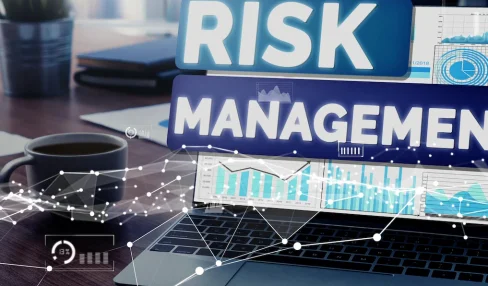What Happens To My Investments When I Pass Away?
25 April 2023
4 Mins Read

toc impalement
When financially planning for the future, it’s also highly important to consider what will happen to your assets and investments when you pass away.
To give you a better understanding of what this might look like, we’ve put together this article to take you through what your estate is, and what you need to consider when leaving an inheritance.
As well as this, you’ll learn how you can optimize your tax efficiency when you leave money for the next generation – including wealth management advice, making the most of your threshold, and much more.
What is your estate?
When you pass away, any assets or investments you want to leave behind will become part of your estate.
This term encapsulates any type of assets you want to bequeath to your loved ones, who will be known as your beneficiaries. These assets can include things such as cash, property, investments like stocks and bonds, or things like jewelry and family heirlooms.
What is an inheritance tax?
If you leave behind an estate for your beneficiaries, the process can be fairly complex when you factor in the tax rules that may apply. More specifically, this refers to the inheritance tax (IHT) charges which you need to know about.
IHT is applied to an estate when it’s inherited, and your beneficiaries may be required to pay a certain amount depending on various aspects of your estate.
When you leave an inheritance, there is an IHT threshold that allows your beneficiaries to inherit your estate and shelter a certain amount of it from IHT.
The amount you can shelter from IHT is what is underneath the threshold. As of the current tax year 2023/2024, the IHT threshold is £325,000.
Any value of your estate below this maximum limit will remain sheltered from IHT, but any value that exceeds this will be taxed at a rate of 40% – with some exceptions.
How can you leave an inheritance as tax-efficiently as possible?

Now you know how your estate is left to your beneficiaries when you pass away, and how IHT plays a role in this, it’s important to consider how you can shelter your estate from IHT as much as possible:
1. Seek the advice of a modern wealth manager
One of the most important things to do is seek the guidance of a modern wealth manager, who can offer you unique advice on how to leave your estate with optimal tax efficiency.
Your adviser will take the time to analyze your financial situation, including any goals you have for leaving your money, as well as any challenges or worries you might have about the process.
As a result, they can offer tailored guidance on how to best approach your estate, and ensure you receive recommendations that best align with your current circumstances.
2. Leave your estate to a spouse or civil partner
Another way you can protect your wealth when leaving an inheritance is to ensure you leave your estate to a spouse or civil partner.
As of the current tax year, any value of your estate which you leave to a spouse or civil partner is exempt from IHT. This includes investments, property, cash, etc.
Once again, your adviser can help you consider this option, and find the best way to leave your estate efficiently, while also meeting any goals you have concerning your assets.
3. Consider giving gifts to your beneficiaries
You should also consider gifting some of your assets away while you’re still alive, to ensure you already have control and are better prepared when it comes to your estate before you pass away.
Any gifts you give away within seven years before you pass away have specific IHT rules depending on various factors
For example, you can give away up to £3,000 worth of gifts each tax year, while being sheltered from IHT. This can include money, household goods, stocks, and shares, and things like jewelry.
Also, you can give away gifts when someone gets married without needing to pay IHT. You can gift £5,000 to your child, £2,500 to your grandchild or great-grandchild, and £1,000 to any other person.
With the right guidance from your modern wealth manager, you no longer need to be concerned about what will happen to your investments and assets when you pass away. Speak to your adviser now to begin devising the right plan to protect your wealth and secure a future for your loved ones.
Please note, the value of your investments can go down as well as up.
Read Also:


















Comments Are Closed For This Article